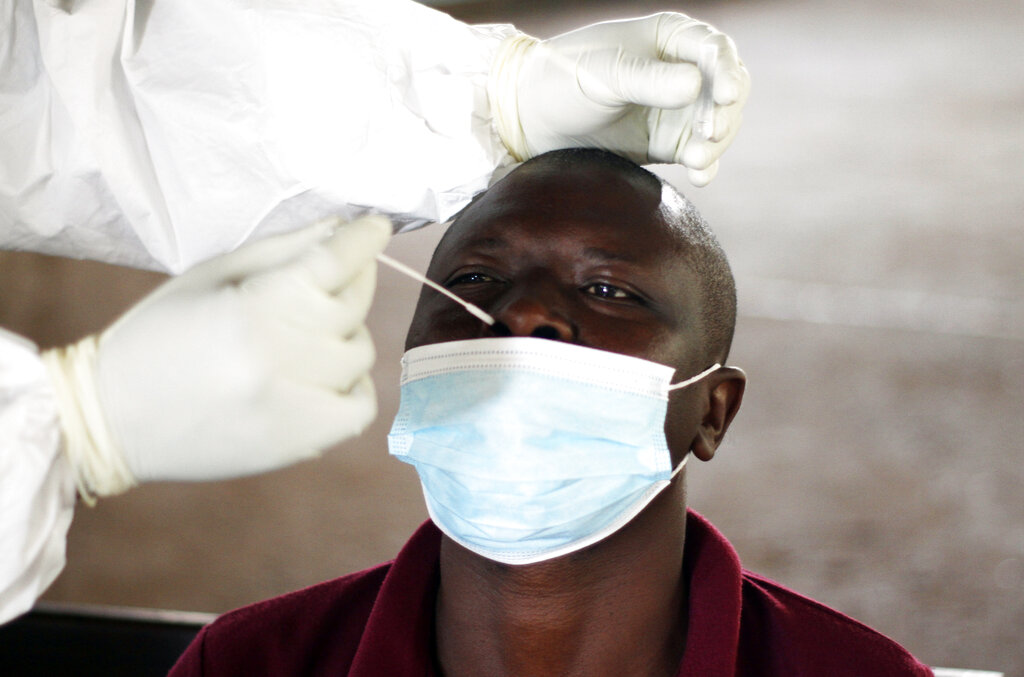Health Officials Closely Tracking New COVID-19 Variants
ADF STAFF
Even as countries around the world return to pre-pandemic patterns, the World Health Organization (WHO) says it is tracking about 200 offshoots of the omicron variant of COVID-19 and warning of the potential for a new deadly version of the virus.
“The virus is still spreading and still changing with the ever-present risk of new variants emerging,” WHO Director-General Dr. Tedros Adhanom Ghebreyesus said during a recent news conference.
Health officials worry that new variants could evolve to be more transmissible and better able to bypass immunity, making them potentially more harmful than their predecessors.
The WHO is paying close attention to omicron offshoots BA.2.75.2 and BA.4.6 and to the BA.5 sublineage of omicron BF.7, which is growing rapidly in several European countries.
BA.5 spread globally earlier this year, accounting for more than 50% of new infections globally in July.
Worldwide, COVID-19 still is causing 10,000 deaths per week, Tedros said.
“Ten thousand deaths a week is 10,000 too many when most of those deaths could be prevented,” he added.
Public health experts say they are now caught between a growing number of variants and a shrinking number of tests being reported. That makes it increasingly difficult to track the spread of variants and to detect new ones as they arise, according to Maria van Kerkhove, the WHO’s technical lead on COVID-19.
“This virus continues to circulate at an incredibly intense level around the world,” van Kerkhove said during the recent briefing. “The more this virus circulates, the more opportunities it has to change.”
The decline in testing has coincided with a rise in self-testing, which doesn’t always result in data being reported to government offices.
“The increase in self-testing is a positive, but it makes it hard to track the progress of the virus,” van Kerkhove said.
In Africa, the case-fatality rate for COVID-19 is 2.1%, nearly double the global average of 1.1%, according to the Africa Centres for Disease Control and Prevention (Africa CDC). Across the continent, 41 countries report a case-fatality rate higher than the global average.
“Although we have low numbers, we have, proportionately speaking, more deaths on the continent,” Dr. Ahmed Ogwell, acting director of the Africa CDC, said during a recent briefing.
Although the continent’s overall case counts remain low, the rate of increase in new cases varies widely from week to week. The Africa CDC recently reported a 42% jump in new cases in mid-September compared to early September. That spike appeared after a reported 14% decline between the end of August and beginning of September.
“Therein lies a concern that the pandemic and the rate of infections and transmission on the continent is not a constant,” Ogwell said. Testing has similarly risen and fallen sharply from week to week. Overall, testing was down 1% from mid-August to mid-September, Ogwell reported.
COVID-19 tests conducted in Africa show a case-positivity rate of 5% to 12%, depending on the country.
Some countries, such as Namibia, have reported no new COVID-19 cases in the past month, according to Johns Hopkins University.
Van Kerkhove urged people to continue to take precautions to prevent the spread of the virus. The world has the tools it needs to control it, she said.
“This virus is here with us to stay, and we have to manage it responsibly,” she said. “There’s still a lot of work to do so we can end this pandemic everywhere.”


Comments are closed.